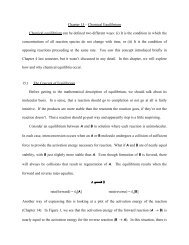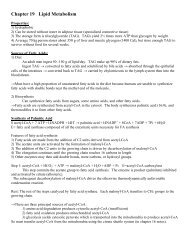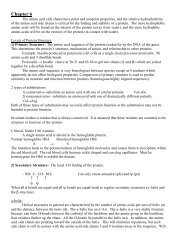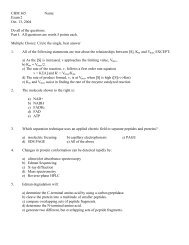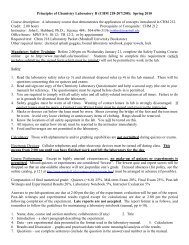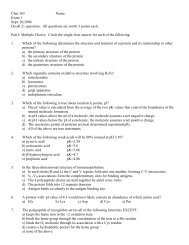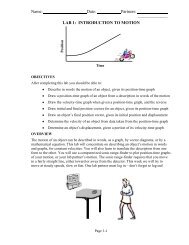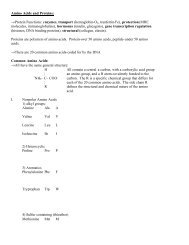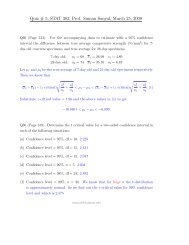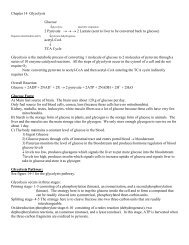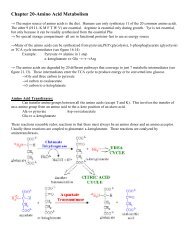THE DHAMMAPADA: THE WAY OF THE BUDDHA, VOL. 9-12 The ...
THE DHAMMAPADA: THE WAY OF THE BUDDHA, VOL. 9-12 The ...
THE DHAMMAPADA: THE WAY OF THE BUDDHA, VOL. 9-12 The ...
You also want an ePaper? Increase the reach of your titles
YUMPU automatically turns print PDFs into web optimized ePapers that Google loves.
240 <strong>THE</strong> <strong>DHAMMAPADA</strong>: <strong>THE</strong> <strong>WAY</strong> <strong>OF</strong> <strong>THE</strong> <strong>BUDDHA</strong>, <strong>VOL</strong>. 9-<strong>12</strong><br />
<strong>The</strong> erect posture helped the mind to come out of sleep. It became more intelligent, it became more alert, it<br />
became more conscious.<br />
Other animals who move on their four legs have not been able to develop intelligence, although many of them<br />
have a mind of almost the same capacity as man. For example, the elephant has a mind of almost the same<br />
capacity as man, but has not been able to develop it and I don’t think it is ever going to happen. In circuses they<br />
try hard to teach the elephant to sit in a chair or to stand even for a few seconds on two feet, but the body is<br />
so heavy the elephant cannot manage to be on two feet. Hence the brain remains clouded; the gravitational pull<br />
keeps it unconscious.<br />
Hence this lotus posture is something valuable. It is not just a body phenomenon; it affects the mind, it<br />
changes the mind. Sit in a lotus posture the whole point is that your spine should be erect and should make a<br />
ninety-degree angle with the earth. That is the point where you are capable of being the most intelligent, the<br />
most alert, the least sleepy.<br />
And then watch your breath, the natural breath. You need not breathe deeply, you don’t change your breathing;<br />
you simply watch it as it is. But you will be surprised by one thing: the moment you start watching, it changes<br />
because even the fact of watching is a change and the breathing is no more the same.<br />
Slight changes in your consciousness immediately affect your breathing. You will be able to see it; whenever<br />
you watch you will see your breathing has become a little deeper. If it becomes so of its own accord it is okay, but<br />
you are not to do it by your will. Watching your breath, slowly, slowly you will be surprised that as your breath<br />
becomes calm and quiet your mind also becomes calm and quiet. And watching the breath will make you capable<br />
of watching the mind.<br />
That is just the beginning, the first part of meditation, the physical part. And the second part is the psychological<br />
part. <strong>The</strong>n you can watch more subtle things in your mind thoughts, desires, memories.<br />
And as you go deeper into watchfulness, a miracle starts happening: as you become watchful less and less<br />
traffic happens in the mind, more and more quiet, silence; more and more silent spaces, more and more gaps and<br />
intervals. Moments pass and you don’t come across a single thought. Slowly, slowly minutes pass, hours pass....<br />
And there is a certain arithmetic in it: if you can remain absolutely empty for forty-eight minutes, that very<br />
day you will become enlightened, that very moment you will become enlightened. But it is not a question of your<br />
effort; don’t go on looking at the watch because each time you look, a thought has come. You have to again count<br />
from the very beginning; you are back to zero. <strong>The</strong>re is no need for you to watch the time.<br />
But this has been the experience in the East of all great meditators: that forty-eight minutes seems to be the<br />
ultimate point. If this much of a gap is possible, if for this much of a gap thinking stops and you remain alert,<br />
with no thought crossing your mind, you are capable of receiving God inside. You have become the host and the<br />
guest immediately comes.<br />
IF YOU ARE NOT WISE, HOW CAN YOU STEADY <strong>THE</strong> MIND?<br />
You have to be very intelligent; only then can you steady the mind. And what does he mean by intelligence?<br />
Ordinarily we behave in a very unintelligent way: we behave according to beliefs; beliefs keep us unintelligent.<br />
We behave according to borrowed knowledge; that keeps us unintelligent.<br />
Try to accept the challenges of life directly; don’t act out of belief or knowledge. Don’t follow the scriptures<br />
and the traditions. <strong>The</strong>y are the root cause of making you stupid, because unless you face life directly, unless<br />
those challenges are encountered, your intelligence will not arise because there will be no opportunity for it to<br />
arise. Give it the opportunity. Life gives many opportunities but you go on missing the opportunities because<br />
you live on borrowed answers.<br />
Face life and its questions and its realities on your own, even if your own responses are not so great they cannot<br />
be. Of course you cannot respond like a buddha, but by borrowing some answer from Buddha you will never be<br />
intelligent enough to become a buddha yourself. Yes, you will commit many errors, many mistakes. Yes, you will<br />
go astray many times go, don’t be worried! Life is meant for that, so that you can try. It is through trials, many<br />
errors, many mistakes, that one learns. When you learn by your own efforts you become intelligent. And only an<br />
intelligent person can see the beauty of meditation, can understand the significance of meditation.<br />
IF YOU CANNOT QUIETEN YOURSELF, WHAT WILL YOU EVER LEARN?<br />
And all learning happens through meditation; it does not happen through study. That is accumulation of<br />
information, it is not learning. Always be alert about borrowed knowledge: howsoever precious it appears it is all<br />
false, pseudo for you. It is not pseudo for the man who has lived it. It is true for Buddha, true for Jesus, true<br />
for Krishna, but not for you. You will have to live....<br />
Buddha also had the scriptures available. He could have read Krishna; the Gita was available. And he was<br />
well-educated he was the son of a king. All the scriptures must have been available to him and great scholars



